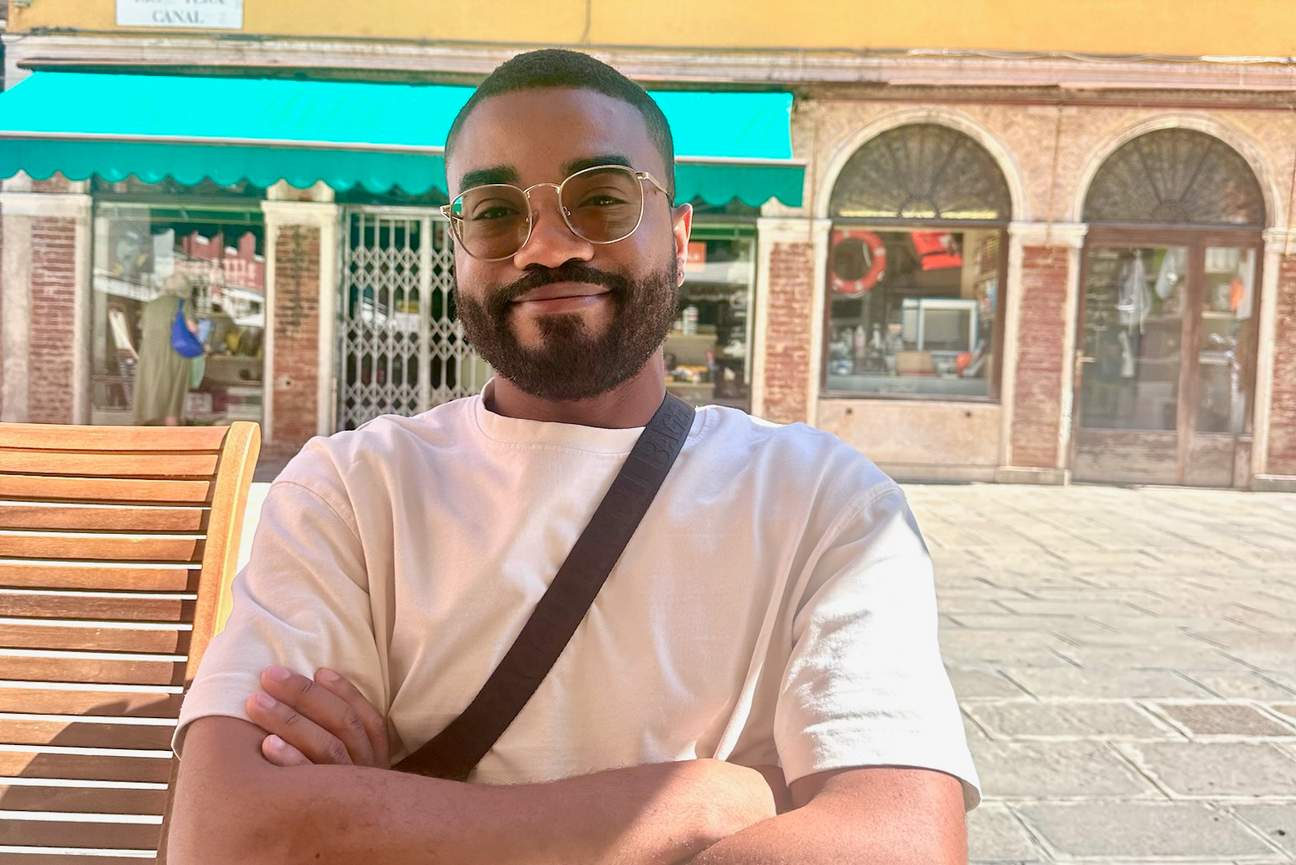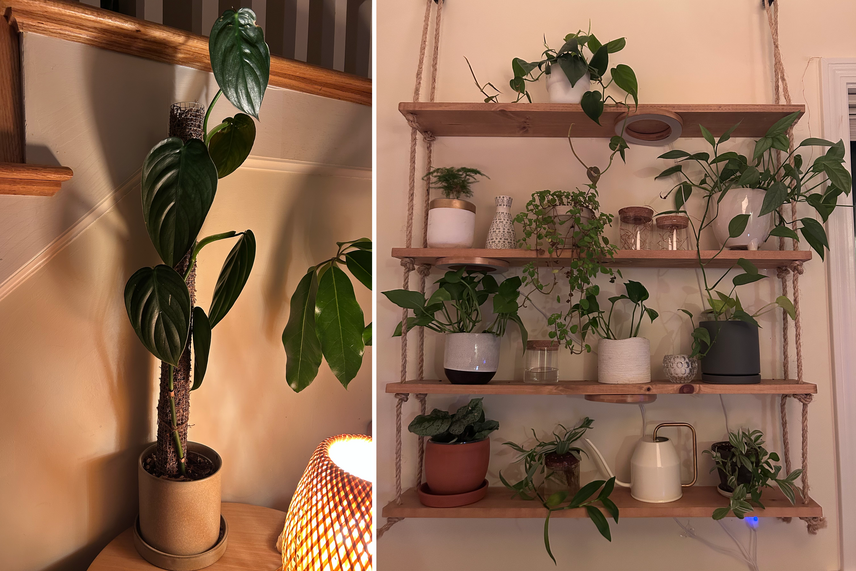
Christopher Reid
Courtesy of Christopher Reid
Meet a Whitehead Postdoc: Christopher Reid
Christopher Reid is a postdoc in Whitehead Institute Member Siniša Hrvatin’s lab studying how mammals regulate their core body temperatures. We sat down with Chris to learn more about him and his experiences in and out of the lab.
What is your current research focus?
At a high level, our lab is interested in understanding how mammals, from rodents to primates, control and regulate their core body temperature, and what determines their different capacities for doing so. As humans, we are always fighting the outside elements to maintain a body temperature of 37 degrees Celsius. Some animals, like hamsters, can drop their core body temperature to as low as 4 degrees Celsius when they're hibernating. When fasted, mice can drop their body temperature to as low as 28 degrees Celsius. These are the animals we are working with. They drop their body temperature like this when environmental conditions are harsh; it’s part of an energy-conserving state known as torpor in which they greatly reduce their metabolic needs. One thing that’s interesting is that torpor as a behavior appears in many unrelated mammals and birds. Part of our research is understanding why these different capacities exist, and part is understanding what are the cells in the brain that control torpor?
How could research into torpor impact humans?
There are two parts to that. One is the more immediate medical aspect: if we could understand how animals like hamsters maintain their whole bodies at extremely cold temperatures, we might be able to put our cells, organs, or bodies in a similar state that can survive temperatures that low. That has direct applications for organ preservation, to extend the life of organs needed for transplants. Then there’s a more science fiction-y far future application, which is that if we want to have long term space travel, we would probably need to be in some sort of hibernation or energy-conserving state during it. I’m a big sci-fi nerd who grew up on movies like Interstellar, so that’s part of why this work excites me. I like the idea that I could contribute to cool stuff that may be done in the distant future with work I’m doing now.
Is your love of science fiction what got you interested in a science career?
Actually, I think my interest came from my appreciation for the natural world. My dad took me fishing a lot when I was growing up. Going into the woods was always exciting because I never knew what fish I was going to catch, and I also saw all these snakes on the rocks and fungi growing off of shrubs. I found all these random and fascinating things that you don't normally see in a classroom. Exploring these unknowns excited me. Although, and I think this is common for a lot of people, I didn't even know that being a scientist was a real career until undergrad. For the longest time, I wanted to be a veterinarian.

Chris' dog, Lady Bird.
Courtesy of Christopher Reid
How did you transition from that interest towards scientific research?
I started to head down that path after my first biology class at community college — I started at community college, and later went to City College in New York. I had a professor who saw that I had an interest in biology, and he presented me with my first research opportunity, which was helping set up EEG work at Binghamton University. That experience was really cool, and got me thinking about becoming a neurologist.
Then, when I transferred to City College, I took a genetics class where the teacher was notorious for giving extremely hard tests and really trying to get students to understand the concepts. She would let you bring the whole textbook to the test, but if you didn't understand the first principles of what she was teaching, then it would be hard to do well. She would actually make up new organisms so the test would say something like, there's an alien species you discovered and it has this ploidy—number of sets of chromosomes—so following the principles of biology, how would you understand this organism? I really enjoyed that because, firstly, it probed at my fascination with “what ifs” but it was also just fun to do the genetics. I ended up doing research in her lab, and she was really the main driving force for me going into academia and pursuing a PhD. She’s probably the most inspiring figure in my life.
Could you say more about the importance of mentorship to your career path?
I don’t think I would be where I am if not for that opportunity to do research in my college mentor’s lab and knowing she was behind me the whole way. Her motivation for me and belief in my capability to apply to PhD programs and succeed and do well as a scientist had a large impact on me. I don’t think I would have known that capability was in myself unless someone had pushed me in that direction. That’s why I try to do everything within my power to feed that forward.
What are your experiences as a mentor? What are your thoughts on how to be a good mentor?
I am always trying to grow and build on that aspect of myself. I want to make sure that I can be a good mentor and try to live up to my old PI. Towards the end of grad school, I wasn't fully sure that I wanted to do a postdoc. I was still considering whether to go into industry or not. What I realized is that, because in grad school I was really focused on my own thesis project, I didn’t spend as much time fostering my capabilities as a mentor. I did work with summer students and such, but now, as a postdoc, I really want to make sure that I can be an effective mentor. That’s such a huge part of being a PI, because you're not the person who's at the bench doing the work. You have to be the one supporting people and making sure that they have everything they need, not just scientifically but also in terms of feeling heard and supported. The reason I ultimately decided to do a postdoc — along with the fact that I still love doing the actual experiments — was to challenge myself to mentor students in a way that they grow and bring out the best of themselves.
What are your hobbies?
It’s debatable whether it's a hobby or not, but I have started to collect a large amount of house plants. I think I have over one hundred different species. It’s really fun to see them grow, and see them take on new forms and shapes, and learn from online communities of ways that you can actually get them to grow more than what people think they're capable of. Right now, I've been creating something called moss poles, which are just long poles with a bunch of moss stuffed in them. If you take many of your common viny house plants, like a pothos, and let them grow up those poles, they’ll grow these huge, large leaves. That’s because, for most of these species, in the wild they grow up tree bark. Also, when you water the moss pole, you're creating this microenvironment of humidity around the plant, which they love. So that’s my current hobby. Other than that, just taking care of my wiener dog, Lady Bird, with my fiancée.

Left: Chris' "Philodendron Burle Marx's fantasy". Right: More of Chris' plant collection.
Courtesy of Christopher Reid
Do you have a favorite plant in your collection?
I have a few species that are on the rarer side. One that I've been enjoying watching grow recently is called “Philodendron Burle Marx’s fantasy.” Where it’s from in the wild is kind of unknown. There was a landscape architect called Roberto Burle Marx who had a huge garden with a bunch of random plant species that he collected from trips around Brazil and elsewhere. I believe that when he passed, and when people came to take from his collection and spread it throughout the community, this one plant was found just growing on his wall, and no one could really identify it. People have been taking cuttings and sending it to each other, and I was able to buy one from this online store, and it's been growing these really nice, huge, large, beautiful leaves off the moss pole. But I also really enjoy the variety, having plants that look so different from each other and different from what you might find at your local plant store.
Where do you see yourself in ten years?
I like the idea of being a PI and running my own lab. I also hope to do work that can help a lot of people in some way. Being at Whitehead Institute and MIT has shown me that you can effectively do both. There are a lot of great PIs here who are also on boards for biotech companies or spinoffs that are creating therapeutics that have the potential to help a significant amount of people. I think as I continue my postdoc, start to feel more confident in my own capabilities, and get feedback from others about my mentorship, then what the right path is will become clear.
Is there anything else you’d like to add?
One other thing I’d like to say about my decision to do a postdoc in the Hrvatin lab: as a new postdoc, and the first postdoc to the lab, I had a lot of nerves in the beginning, but I'll say that being a year into it, I couldn't have made a better choice. The people I work with and Siniša himself are all amazing. When you're in the process of choosing a postdoc lab, you never know for sure how it’s going to be, and I could not have found a better place.
Topics
Contact
Communications and Public Affairs
Phone: 617-452-4630
Email: newsroom@wi.mit.edu


